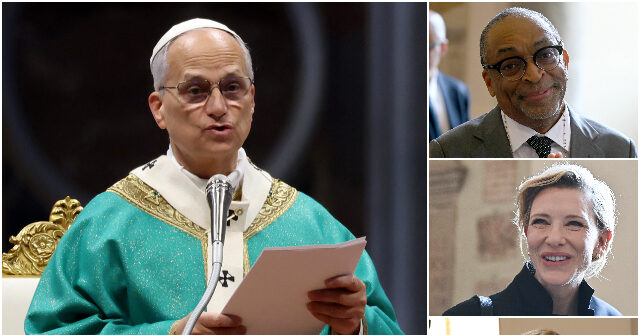Pope Leo XIV, the first American Pope in history, hosted a star-studded event at the Vatican attended by Hollywood A-listers and filmmakers from around the world where he celebrated the art of cinema for its ability to bring the human condition to visual life on a mass, communal scale.
In his eloquent speech, the Holy Father discussed Cinema’s origins as a “play of light and shadow, designed to amuse and impress” before it evolved into a “popular art in the noblest sense, intended for and accessible to all”
One of cinema’s most valuable contributions is helping audiences consider their own lives, look at the complexity of their experiences with new eyes and examine the world as if for the first time,” he said. “In doing so, they rediscover a portion of the hope that is essential for humanity to live to the fullest.”
“I find comfort in the thought that cinema is not just moving pictures; it sets hope in motion,” he added.
The Holy Father then expounded upon the magic of cinematic experiences, likening it to “crossing a threshold” into a dark and silent place where “vision becomes sharper, the heart opens up, and the mind becomes receptive to things not yet imagined.”
“Cinema is much more than just a screen; it is an intersection of desires, memories and questions. It is a sensory journey in which light pierces the darkness and words meet silence. As the plot unfolds, our mind is educated, our imagination broadens, and even pain can find new meaning,” he continued.
While the Holy Father acknowledged technology’s positive influence on Cinema, from visual effects to expanded worlds, he also acknowledged technology’s fracturing of the art form away from its communal experience, from phone screens to social media algorithms.
Continue Reading on Breitbart
This preview shows approximately 15% of the article. Read the full story on the publisher's website to support quality journalism.
